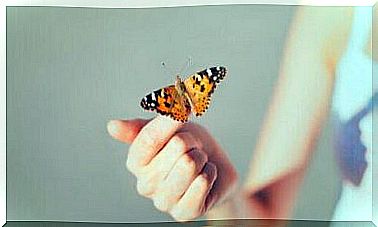Happy Children Are Responsible Children

We have begun to eradicate sayings such as “save the rice, and you will spoil the child”. These sayings and ways of teaching are not only outdated, but also misguided, especially since we know that discipline does not create happy children and that happy children are more responsible.
It is vital that we begin to internalize the importance of happiness in the education of children. It is best to make them like knowledge and help them develop to their full potential.
When we talk about a happy child, we should not confuse this with a spoiled child. A happy child is not one we have to give everything to.

Obviously, frustration is a part of life, no matter how little we like this fact. And your children will suffer from it, at least during certain periods of their lives. But happy children will have the necessary tools to overcome any phase or trauma.
In other words, a happy child is not a spoiled child. The little ones should understand where their boundaries go and what they can and cannot do. However, this knowledge does not have to be dramatic or traumatic.
A child who feels loved, who is happy in his surroundings, who can recognize the limitations of life and accept them, it is a person who will grow up to be responsible and aware of himself and what happens in his surroundings.
We will list a number of traits that describe a happy child, and explain why these make him or her more responsible for what happens in life and the environment:
- A happy child has a better character: All little ones who are happy in their surroundings develop good character. This is very healthy because it makes them better at internalizing the concepts of justice and honesty.
- The good character of a happy child gives him or her various virtues: A child who grows up in a happy world learns virtues such as honesty, moderation, love, sacrifice for others, empathy, generosity, humility and the ability to overcome certain difficult stages in life.
- A happy child is more positive: Happy children have a very positive outlook on life. They are proactive and persistent when faced with challenges. They work very hard to overcome adversity and they are very grateful.
- A happy child is more receptive: Furthermore, happy children have healthier relationships with their parents. They will be much more receptive to love, emotional ties and communication with others.
- A happy child learns more: As we said, happy children are much more receptive. Therefore, they are more open to lessons and knowledge. From this point of view, they understand examples better, have better attention when talking to them and listen to different opinions from their parents. They are able to distinguish right from wrong and draw their own conclusions.

- A happy child differentiates priorities: Children who live in a happy environment learn to differentiate their priorities. They know, for example, that their access to toys, technology and rewards is a privilege, never a right. They understand the value of things and respect it.
- The child has a conscience: Happy children understand messages well and know how to distinguish right from wrong. Therefore, they develop a powerful conscience. And this is thanks to emotional education, which makes them more receptive and self-aware.
- A happy child knows how to develop his life: A happy child learns to give weight to life’s priorities, such as family, friendship, love, altruism and solidarity, or values and ethics. In this way, he or she will be less disoriented, develop judgment early and avoid falling into risky behaviors.
It is clear that a happy child will have a fuller and more complete existence. But remember to never confuse this with pampering, unlimited freedom or strong ties to material things. For this is a mistake that creates tyrannical and addictive behaviors. Simply let the child be himself in an emotional environment full of love and understanding.









